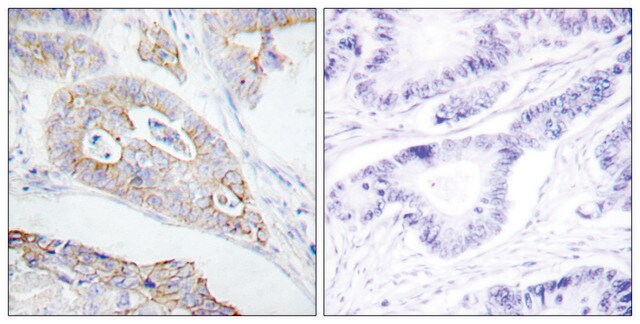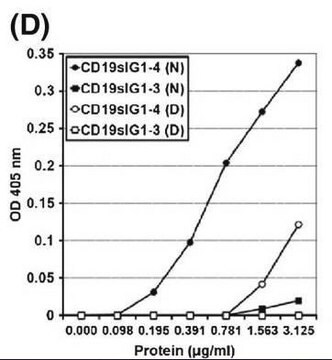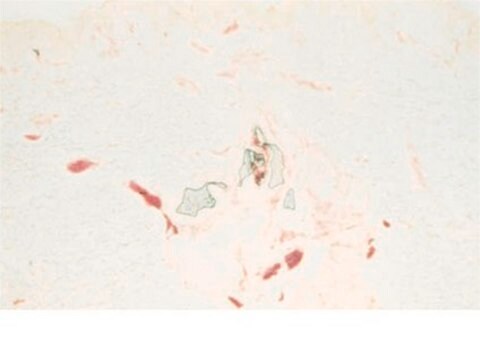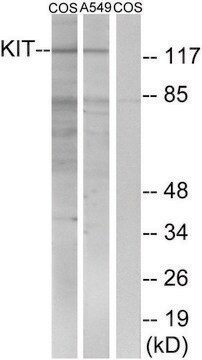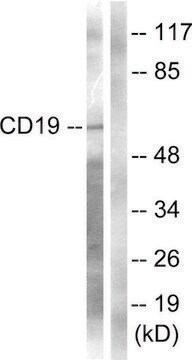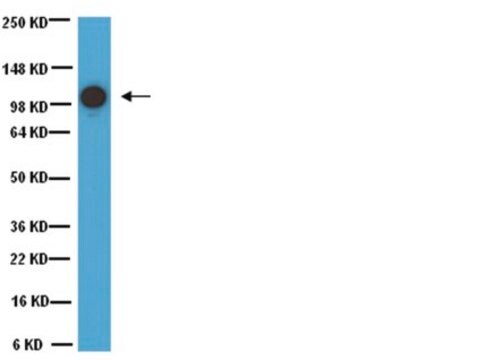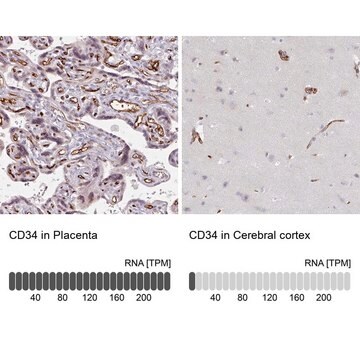MAB4315
Anti-STRO-1 Antibody, clone STRO-1
ascites fluid, clone STRO-1, Chemicon®
About This Item
Produits recommandés
Source biologique
mouse
Niveau de qualité
Forme d'anticorps
ascites fluid
Type de produit anticorps
primary antibodies
Clone
STRO-1, monoclonal
Espèces réactives
human, primate
Fabricant/nom de marque
Chemicon®
Technique(s)
flow cytometry: suitable
immunofluorescence: suitable
Entrée
sample type mesenchymal stem cell(s)
Isotype
IgM
Conditions d'expédition
dry ice
Modification post-traductionnelle de la cible
unmodified
Description générale
Spécificité
Immunogène
Application
Remarque sur l'analyse
Bone marrow cultures
Informations légales
Vous ne trouvez pas le bon produit ?
Essayez notre Outil de sélection de produits.
Code de la classe de stockage
10 - Combustible liquids
Classe de danger pour l'eau (WGK)
WGK 1
Point d'éclair (°F)
Not applicable
Point d'éclair (°C)
Not applicable
Certificats d'analyse (COA)
Recherchez un Certificats d'analyse (COA) en saisissant le numéro de lot du produit. Les numéros de lot figurent sur l'étiquette du produit après les mots "Lot" ou "Batch".
Déjà en possession de ce produit ?
Retrouvez la documentation relative aux produits que vous avez récemment achetés dans la Bibliothèque de documents.
Articles
Frequently asked questions about mesenchymal stem cells including MSC derivation, expansion, differentiation and allogenic stem cell therapy.
Protocoles
Information about mesenchyme, specifically mesenchymal stem cell procotols. Step-by-step cell culture protocols for mesenchymal stem cell (MSC) isolation, expansion and differentiation.
Notre équipe de scientifiques dispose d'une expérience dans tous les secteurs de la recherche, notamment en sciences de la vie, science des matériaux, synthèse chimique, chromatographie, analyse et dans de nombreux autres domaines..
Contacter notre Service technique